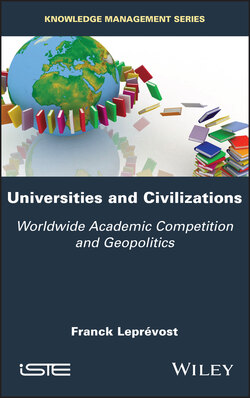Читать книгу Universities and Civilizations - Franck Leprevost - Страница 15
1.1. The sun is shining in Berkeley
ОглавлениеThe sun is shining in Berkeley this September 2016. The presidents, vice presidents, and representatives of some of the world’s top universities, however, are not taking advantage of California’s fine weather. Gathered at the World Universities Summit, they are debating the challenges of higher education and high-level research in a pleasantly air-conditioned room with the curtains firmly drawn.
At around 5 p.m., a new round-table discussion ends in the tradition of all events organized by Times Higher Education. Argumentative, consensual and without great surprise. The chairman opens the question-and-answer session. They follow one another. Argumentative, consensual and without great surprise.
Until...
A finger rises in the audience. Its owner, an American professor, speaks. His address recalled that American universities had benefited greatly from public funding during the Cold War. Referring to a book published in 1997 (Chomsky et al. 1997), with chapters by nine academics, he pointed out that this funding, however, had a tendency to melt like snow in the sun, as East-West political relations had warmed up. As tensions between the United States and Russia or between the United States and China return – and are likely to continue in some form or another regardless of who becomes president1 of the United States – will history repeat itself? Will America’s public universities2 (whose direct federal resources have been in steady decline for decades) experience a new golden age and their researchers be given new levels of funding? The answer was as expected: cautious, consensus-seeking, and expressing virtuous hope for a renewal of government funding for American universities, independent of any international tension.
It is natural, however, to extend this question and the idea behind it: more generally, do the international tensions in the world have, or will they have, a global impact on universities, especially those who are global leaders3, some of which were gathered at the Berkeley Congress? Is there a geopolitical reading of the various excellence initiatives that a number of countries have launched in recent years? Beyond the nations themselves, can we go so far as to shed light, in terms of civilizations, on the global landscape of higher education and cutting-edge research? In other words, does the evolution of the ranking of the best universities say something about the vitality of the civilizations to which they belong? Are international rankings becoming a revealing thermometer of a geostrategy of knowledge?
These questions are, of course, so broad that it would be illusory to attempt to give a definitive answer, especially in this section, which is intended as an introductory overview.
